The showcase will feature more than a dozen local vendors in the industry, including photographers, florists, musicians and stationery printers.


The showcase will feature more than a dozen local vendors in the industry, including photographers, florists, musicians and stationery printers.

Kate Wargo moved to Asheville in fall 2021 with hopes for a fresh start. Teaching elementary school during the COVID-19 pandemic had left her exhausted, anxious and depressed. “It was the first time I felt dehumanized,” she says of the previous two years teaching fourth grade in Pennsylvania.

The lawsuit was brought by WNC Citizens for Equality, led by former Council member and Buncombe County Republican Party Chair Carl Mumpower, and charged that the scholarships excluded otherwise eligible applicants on the basis of race.
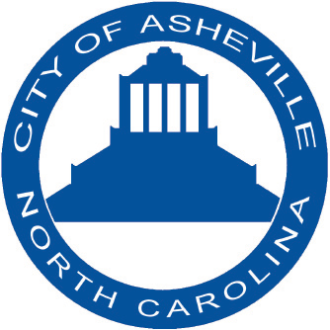
Asheville City Council will consider rezoning roughly 128 acres of property along South Tunnel Road, including the sites of the Asheville Mall and a Whole Foods, to Urban Place zoning.

“To prevent our community from continuing to fail our Black youths, white parents should demand that barriers to opportunities for Black youths are removed, and policies are implemented with an intentional focus on racial equity.”
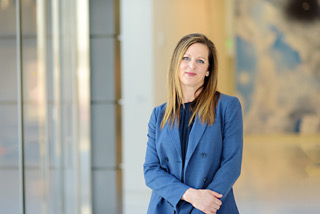
A $10,000 scholarship for local Black students is the subject of a lawsuit by a group headed by a former Asheville City Council member. Carl Mumpower, president of WNC Citizens for Equality Inc. and a former chair of the Buncombe County Republican Party, filed a civil suit Oct. 11. It names the city of Asheville, […]

The city’s proposed nondiscrimination ordinance is nearly identical to that passed 6-0 by the Buncombe County Board of Commissioners on April 20, which prompted extensive public comment from residents in both support and disagreement.
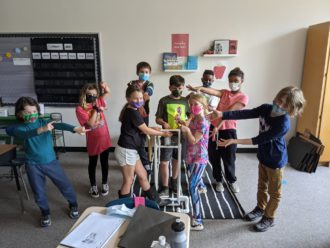
The first quarter sales of the Go Local card represent a push by residents to support local businesses.

At its April 13 meeting, Council will decide whether to purchase 21 acres of land intended for affordable housing using $1.6 million generated from the December sale of city-owned land acquired through urban renewal policies.

Throughout the pandemic, local arts programs have rallied and adapted to the demands brought about by COVID-19, providing teachers much-needed relief and students a chance to express themselves during these trying times.
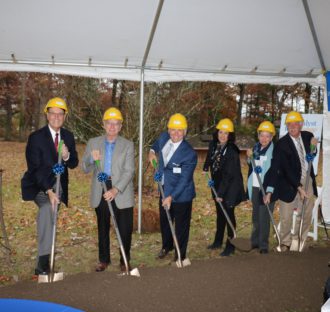
For our nonprofit special issue, Mountain Xpress took a look at a spectrum of local nonprofits that have recently experienced significant changes or are in the midst of transformative shifts in management or focus. We also checked in on some of the largest grant funding awards our region has seen this year.
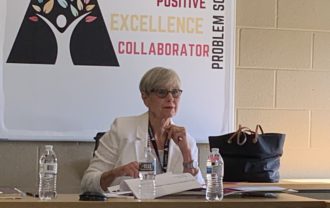
Interim Asheville City Schools Superintendent Bobbie Short is taking over — for the third time in six years — as the district struggles with extreme disparities in the academic performance of its white and black students, which are the largest of any district in the state. The district is once again searching for a permanent leader. In the best-case scenario, a new superintendent will start work in January.

When the time comes for a new leader or a new strategic direction, nonprofits recognize that sound decisions can mean the difference between a sustainable future and irrelevance. That’s why Mountain Xpress took a look at a spectrum of local nonprofits that have recently experienced significant change s or are now in the midst of transformative shifts in management or focus.

As a result of the HCA acquisition of Mission Health, proceeds of the sale created the Dogwood Health Trust, a nonprofit foundation whose purpose is “to dramatically improve the health and well-being of all people and communities in Western North Carolina,” according to a press release from the trust.

“When the members of this class were born, the nation and the entire world were in a panic — not because these particular little babies happened to arrive then, but because the Great Depression had begun.”

The Asheville forum kicks off the IEI’s broader ReCONNECT NC initiative. Over the next three years, a series of six forums in four different cities will focus on the overarching theme of reconnection. Maggie Woods, policy and program manager at IEI, says people across the state are feeling out-of-touch and that this sense of detachment needs to be addressed at length.

“With the halving of school resources over the last few years, it looks like Raleigh wants to make quite sure that our kids ‘don’t count.’ Defeating this brazen attack on our own and our kids’ future will need volunteer efforts over the long haul, not one-time flashes in the pan.”

While it makes logical sense that students who’ve spent years attending Asheville City Schools would know better than anyone what is and isn’t working to promote their educational success, asking those students for input is nonetheless a radical proposition. That’s not stopping the system and the Asheville City Schools Foundation from carrying out The Listening Project to allow educators to learn from students’ experiences and insights.

“Raw talent is evenly distributed through the school population, but opportunity is not. If we are going to supplement their education in some way, we have to go where the kids are and cover all of them.”

The North Carolina Apple Festival returns for its 71st year. Also: Whole Foods Market and Greenlife raise funds for Asheville City Schools Foundation, the Acupuncture for Digestive Health offers a free event on fats, The Asheville School of Wine hosts a canned wine tasting event and French Broad Chocolates announces plans for expansion.
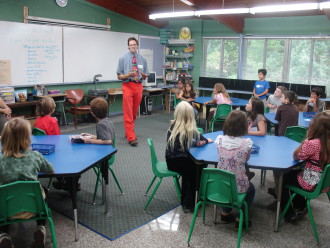
When seasoned teachers leave the classroom, everybody suffers. Students lose out on the benefits of the educators’ experience, school systems struggle to find and train replacements and the larger community often mourns the departure of a valued contributor with established relationships. While Asheville and Buncombe County public schools have lower teacher turnover than in other parts of the state, retaining and attracting the best teachers is increasingly challenging.